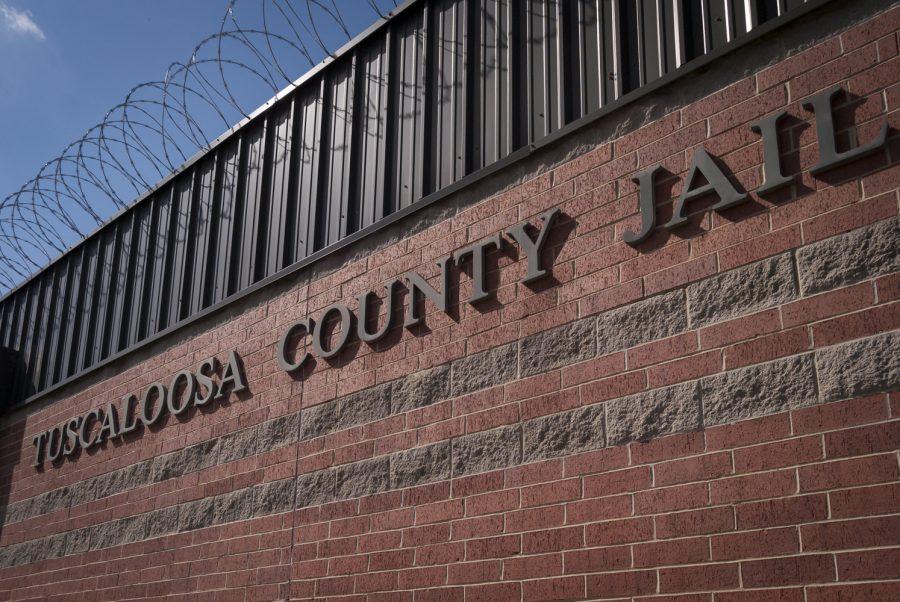On campus and around the world, the problem of lacking mental health care has become a growing issue. The United States has both high percentages of its population with mental health issues and citizens in jail, and according to some local experts, someone falling into both categories could be in a world of trouble.
“The last place that a person with a mental illness needs to be at is a County jail,” Tuscaloosa County Sherriff Ron Abernathy told a crowd gathered in the Willard Auditorium of the Druid City Hospital.
However, that is exactly where many citizens with mental illness end up.
The panel gathered at DCH yesterday afternoon discussed the overlap of two important civil topics: criminal justice and mental healthcare. On the panel were Marisa Giggie, Bradly Almond and Sherriff Ron Abernathy, representing voices from psychiatric medicine, law, and enforcement respectively.
Beginning the panel, Giggie of the College Community Health Sciences and a psychiatrist for the Tuscaloosa County Jail, spoke on the high intersection of mental health amongst criminals across all demographics.
Giggie said 75 percent of women and 63 percent of men in county jails nationwide have a diagnosable mental illness. Those populations make up 40 percent of diagnosable Americans total. In a nation with an estimated 25 percent rate of mental illness, that amounts to roughly two million Americans incarcerated with mental illness.
The reason, Giggie told the audience, that the numbers for the imprisoned ill are so high, is due to the role of mental healthcare being abandoned by specialized care facilities and consolidated with prisons.
“States have cut five billion dollars in mental health services between 2009 and 2012,” Giggie said and that it had continued as a trend past 2012. Because of this, Giggie said that over 350,000 people with serious mental illnesses were now in prisons, compared to 35,000 in hospitals, creating a cost of $15 billion a year to taxpayers.
“Correctional facilities have become the safety net, and they’re a terrible safety net,” Giggie said.
Next to present was Bradly Almond, presiding judge of the 6th Circuit Court for Tuscaloosa County. Together with colleagues in the court, jail, sheriff’s department, and Indian River Mental Health Center, Almond created the Mental Health Court program for Tuscaloosa in June 2012.
Modeled after similar programs nationally and in Shelby County, the Mental Health Court provides an opportunity for mentally ill citizens charged with a crime to plead guilty to offenses, but to escape jail time or records of crime.
The court has stipulations. Those charged with the sale, trafficking or production of narcotics, and those charged with violent felonies, are ineligible for the program. Additionally, prospective citizens must be medically evaluated by a psychiatrist and found to have one of several severe mental illnesses.
“You have to plead guilty to enter into that program,” Almond said.
Currently, the program has had 140 participants, 81 graduates and 40 removals. The program lasts 12 months and subjects participants to rigorous scrutiny and constant therapy in the hopes of preventing the occurrence of future crimes.
“It’s all about the teamwork here in Tuscaloosa County. We are very blessed with the resources we have,” Abernathy said.
Abernathy touted recent advancements that Tuscaloosa had made in dealing with cases of potential mental illness.
“We are at the elite status here in Tuscaloosa as far as the state of Alabama,” Abernathy said.
In 1999, Tuscaloosa County Jail only had one part-time nurse on staff. Now, in addition to a full medical staff in the jail, Tuscaloosa County has also equipped four units as paramedic deputies, who play a dual role in rural Alabama as both medical responders and law enforcers.
Additionally, Abernathy praised the permission granted to the Sheriff’s Department to hire Keith Fair, a new Mental Health Officer trained to offer options besides arrest to suspected cases of mental illness. Per Abernathy, Fair, who was hired this year, has yet to make an arrest, able to defuse situations through alternative means.
Regardless, the issue of mass incarceration still looms overhead the criminal justice system. Giggie presented the common statistic that the United States contains only five percent of the world’s population, but 25 percent of its prison population.
Almond too, complained that Tuscaloosa County Jail, designed to contain 15,000, now houses almost 30,000 inmates.









